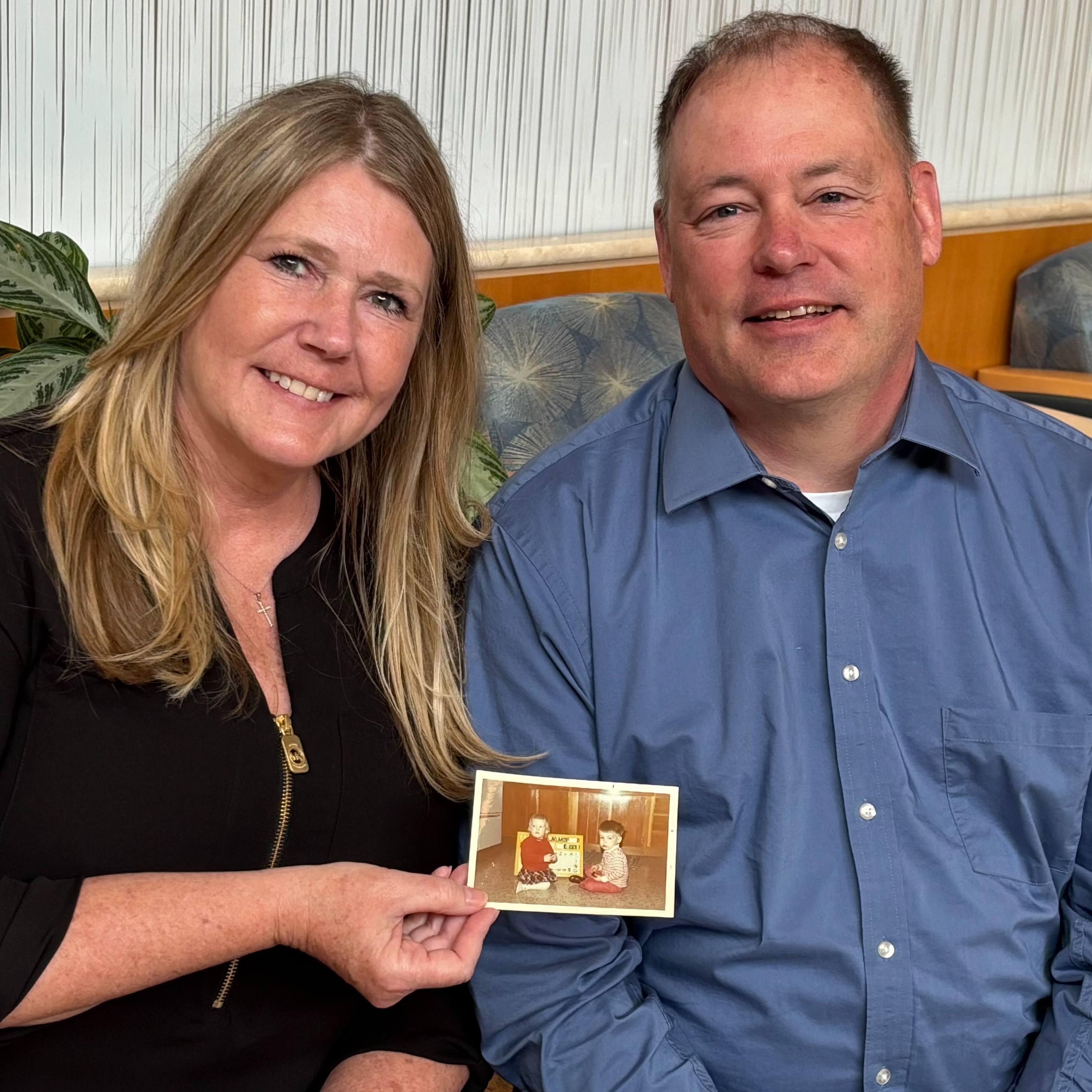-
Lifestyle Changes Yield Positive Results for Wisconsin Woman With Diabetes
When Debbie Hundley learned she had diabetes and realized what it was doing to her body, she was determined to make the adjustments needed to get the disease under control and keep it that way.
For Debbie Hundley, the shift was gradual. Life got busy. She let things go, and before she knew it, her energy level was at an all-time low.
"I didn't pay attention to the changes in myself," says Debbie, a resident of Barron, Wisconsin. "I kept telling people I was so extremely tired, but I wasn't connecting that to anything. I would go into work and say, 'I just feel like I've been drugged.' I could hardly get myself out of bed in the morning."
The mystery was solved at her annual physical exam, Debbie says. "That's when the lab work discovered the diabetes."
Support for better health
Fatigue is one of the telltale symptoms of diabetes, a disease that affects how the body uses blood sugar. Inactivity and excess weight increase a person's risk of developing Type 2 diabetes, the kind Debbie has.
At the time of her physical, the results of Debbie's A1C test — a common blood test to diagnose diabetes — was 7.3 percent. Levels of 6.5 percent or above indicate diabetes. Her physician quickly connected her with Louise Wanner, a diabetes educator at Mayo Clinic Health System – Northland in Barron. Wanner explained to Debbie the effect diabetes could have on her body, how to use a glucose meter to test blood sugar, and what to do if her blood sugar levels were too high or low.
"Debbie decided she wanted to make some changes. Her diagnosis was the instigator she needed to take better care of herself, and she did." — Louise Wanner
"Initially, our goals are to provide awareness of what diabetes can do and how it physically affects your body and lifestyle," says Wanner, noting she typically meets with patients three times with a phone call in between. "Debbie decided she wanted to make some changes. Her diagnosis was the instigator she needed to take better care of herself, and she did."
Change for good
In a matter of months, Debbie shed 70 pounds and brought her A1C level down to a much safer 5.3 percent. She attributes her rapid success to a combination of diet and exercise changes, along with diabetes medication.
"I don't say it's a diet. It's a lifestyle change," says Debbie, who reports feeling more energetic and "100 percent better."
"I eat healthier. I watch my portion sizes. I've cut out high-carb foods and a lot of sweets. Basically, I've changed my diet to accommodate healthier choices," she says. "I've had a lot of support from my family and co-workers, and that's extremely helpful."
"People say, 'How are you going to keep it up?' But I really don't feel deprived or that it's work. I've embraced it. That's the way it is, and that's the way it's going to stay." — Debbie Hundley
Debbie also has incorporated exercise into her routines, walking a minimum of two to three times a week. She says she soon hopes to wean herself off the diabetes medication.
"My goal is to be medication-free," says Debbie, who pledges to maintain her healthy new habits long term.
"People say, 'How are you going to keep it up?' but I really don't feel deprived or that it's work," she says. "I've embraced it. That's the way it is, and that's the way it's going to stay."
Debbie appreciates Wanner's encouragement and the support she's found through Diabetes Education.
"You need that when you're first starting out," she says. "It's just been very helpful. If there are any questions I have, I won't hesitate to call her and ask."
HELPFUL LINKS
- Learn more about diabetes.
- Read about how lifestyle affects blood sugar.
- Connect with others talking about Type 2 Diabetes on Mayo Clinic Connect.
- Explore Mayo Clinic Health System.
- Request an appointment.








